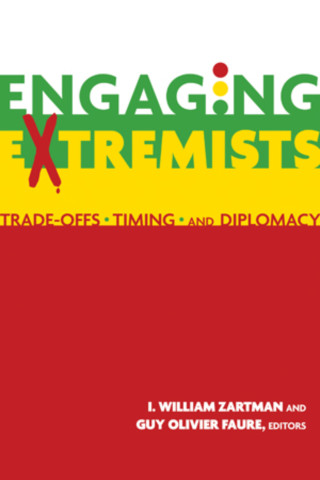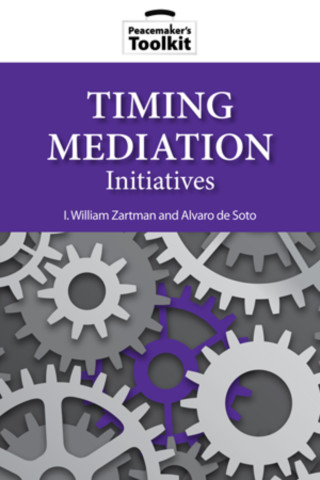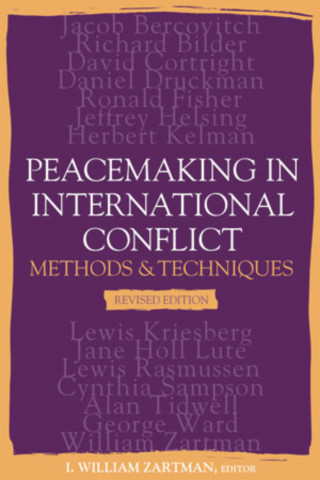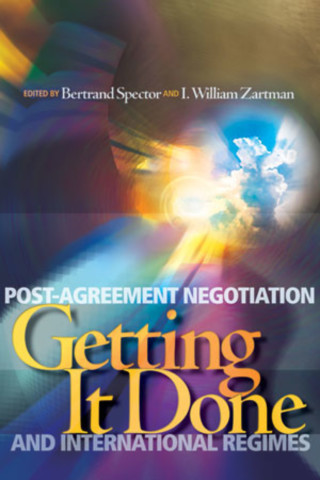I. William Zartman
I. William Zartman is Professor Emeritus at the Paul H. Nitze School of Advanced International Studies (SAIS) of Johns Hopkins University. He earlier directed the school's Conflict Management and African Studies programs. He holds the Jacob Blaustein Chair in International Organizations and Conflict Resolution. He is a founder and current Board Chairman of the International Peace and Security Institute (IPSI).
Author's Books
Engaging Extremists concerns negotiation with political terrorist organizations, separating terrorist groups that can be engaged from those that, for the moment, cannot.
This toolkit lays out five steps mediators can take to determine when a conflict is ripe for mediation.
This updated and expanded edition of the highly popular volume originally published in 1997 describes the tools and skills of peacemaking that are currently available and critically assesses their usefulness and limitations.
This collaboration of renowned scholars and a practitioner in conflict management and African politics seeks to draw wide-ranging and timely conclusions on the early stages of mediation from six case studies: Burundi, Rwanda, the Congo, Sudan, and West Africa and the border conflict between Ethiopia and Eritrea.
From NAFTA to NATO, from the WTO to the WHO, a vast array of international regimes manages an astounding number of regional and global problems. Yet the dynamics of these enormously influential bodies are barely understood. Scholars have scrutinized international regimes, but that scrutiny has been narrowly focused on questions of regime formation and regime compliance. Remarkably little attention has been paid to the crucial question of how regimes sustain themselves and evolve.
This pioneering work sets about correcting that neglect. As its title suggests, Getting It Done explores how international regimes accomplish their goals—goals that constantly shift as problems change and the power of member-states shifts. In a series of conceptually bold opening chapters, the volume editors emphasize that successful evolution depends above all on a process of continuous negotiation—domestic as well as international—in which norms, principles, and rules are modified as circumstances and interests change.
The second part of the volume takes this framework and applies it to four case studies, two regional, two global. Each case study presents the aims, achievements, and structure of a regime and demonstrates how it adjusts its course through negotiation. A final chapter draws both theoretical and practical lessons for the future.
The methods and techniques of peacemaking--whether it is called conflict resolution, management, or transformation--have become increasingly sophisticated, partly in response to the increased complexity of international conflict today. This volume describes the tools and skills that are currently available and critically assesses their usefulness and limitations. The field's preeminent researchers and practitioners, including a diplomat and an NGO representative, present not only the more traditional approaches to peacemaking--bargaining and negotiation, third-party mediation, and arbitration and adjudication. They also present newer, "nonofficial" approaches that have attracted considerable attention for their innovativeness--social-psychological approaches, problem-solving workshops, conflict transformation, and training. Written for scholars as well as practitioners in all aspects of peacemaking and foreign policymaking, the chapters in Peacemaking in International Conflict provide cogent analyses and offer practical lessons for a variety of conflict settings, from disarmament and arms-control negotiations to subnational conflicts in the new and emerging states of the post-Cold War era.






